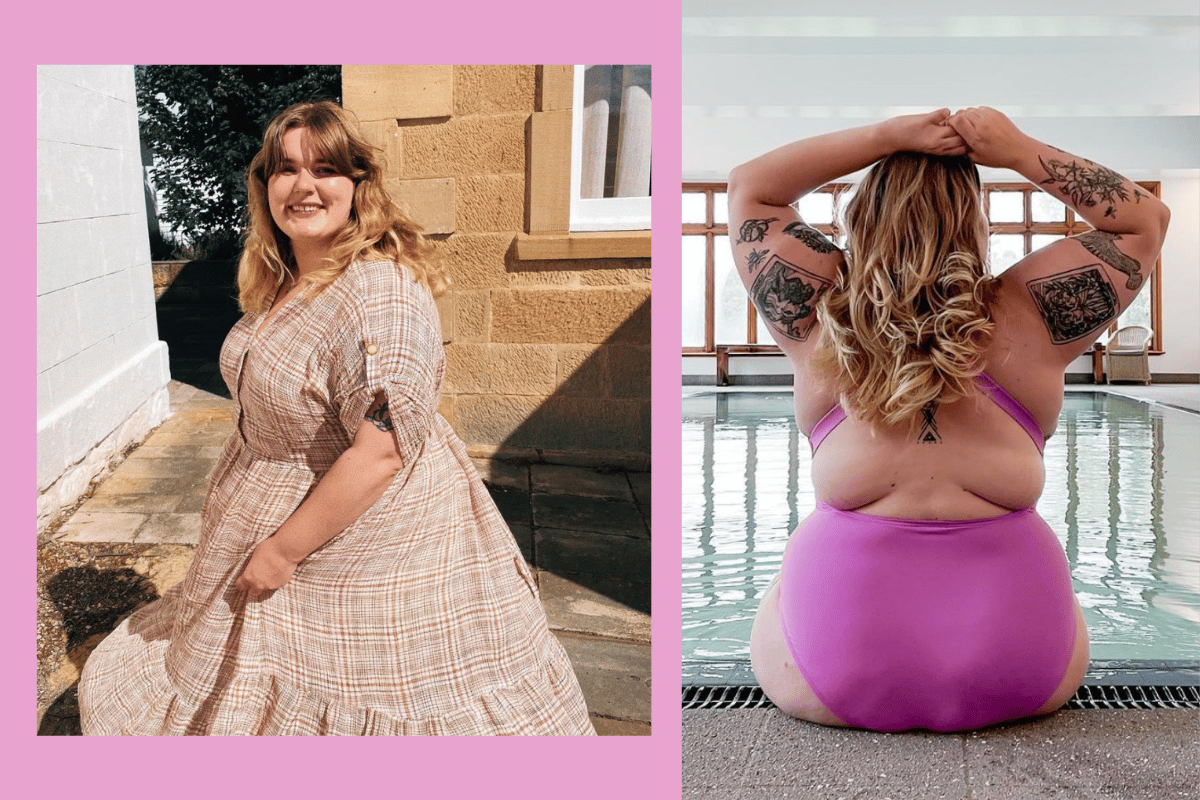
This post deals with eating disorders, and could be triggering for some readers.
People who are a size 16 or over, especially in Western demographics, represent about half of the female population currently in 2021.
So why aren't clothing brands getting the message in Australia?
Someone who is carving her space in this conversation is friend of Mamamia, Katie Parrott.
Katie Parrott is an Instagram influencer who is on a mission to help ignite change in the fashion industry to represent consumers of all shapes, sizes and bodies.
In this week's instalment of Mamamia’s What Are You Wearing? podcast, Katie spoke about Australia’s problem with sizing - and trust us when we say it’s a pretty big problem.
Listen to What Are You Wearing? to hear Katie Parrott talk about Australia’s problem with sizing. Post continues after podcast.
For Katie, who is a size 22 to 24, plus-size clothing options are hard to come by in Australia.
“We are definitely behind, there’s no denying that. The options available internationally are incredible. For example, I love the outdoors and bushwalking, but I can’t find bushwalking clothes in Australia. I get a friend from Canada to ship those clothes to me.”
“It’s fatphobia. The consumer base is there. Brands don’t want us in their clothing because [we're] not an ‘aspirational’ demographic," Katie says.
